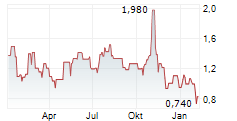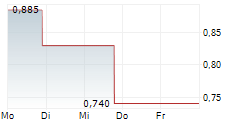
NV-387, A Broad-Spectrum Antiviral with Strong Activity Against RSV, Influenza A, Coronaviruses, Others
SHELTON, CT / ACCESSWIRE / May 20, 2024 / NanoViricides, Inc. (NYSE American:NNVC) (the "Company"), a global leader in broad-spectrum antiviral nanomedicines, says that the strong antiviral activity of NV-387 against RSV/A2 is clearly demonstrated by lungs remaining normal and showing no infection-related damage, when treated orally with NV-387, in a lethal lung RSV infection animal model. The animals in only the NV-387 treated group survived completely, as previously reported. The complete survival and clear lungs indicate that NV-387 treatment completely protected the animals and could be potentially a cure for RSV infection.
In this study, extended dosing of NV-387 given orally was compared with a high dose of ribavirin given orally. Two doses were given on first day of dosing followed by one daily dose for next 9 days (total 11 doses).
The lethally RSV-infected animals in the NV-387-treated group showed no lung damage in lung histo-pathology study at all time points during the study, including at the end of the study. This demonstrates that the the NV-387 oral treatment completely protected the animals from the lethal level of RSV infection. Animals in this group survived completely, beyond the 21-day study period, as previously reported.
In contrast, lethally infected animals in the Ribavirin oral treatment group showed progressive lung pathology, demonstrating progressive inflammation in the lung tissue which resulted in moderate levels of inflammation as well as infected cells in the inflammatory infiltrate on day 10, increasing to severely infected lungs with alveolitis and severe pneumonia by day 13. All animals in the ribavirin-treated RSV infected group died by 14 days.
These lung histo-pathology results support our belief that NV-387 oral treatment led to complete cure of the lethal RSV infection.
There is currently no approved treatment for RSV other than the highly toxic, last-resort drug, ribavirin. A safe and effective treatment remains an unmet medical need.
"These results clearly demonstrate that NV-387 oral treatment would be of great clinical value for protecting infants and children from RSV," said Anil R. Diwan, PhD, adding, "We are very pleased with these results and plan on advancing NV-387 for the treatment of RSV infection into clinical trials as soon as possible."
RSV is an important disease in infants and children less than 5 years old, as well as in older persons over 65 years old. According to the CDC, each year in the United States, RSV leads to approximately:
- 58,000-80,000 hospitalizations among children younger than 5 years old;
- 60,000-160,000 hospitalizations among adults 65 years and older;
- 6,000-10,000 deaths among adults 65 years and older; and
- 100-300 deaths in children younger than 5 years old.
Two vaccines have recently been approved for protection of persons 60+ years old from RSV infection (Arexvy®, GSK, and Abrysvo®, Pfizer). Abrysvo was recently approved for use in pregnant women for protection of infants. Palivizumab (Synagis®), an antibody, as well as a new antibody, nirsevimab (Beyfortus®) have been approved by the US FDA for protection of newborn children at risk of RSV disease, but not for treatment of RSV infection and disease.
About NanoViricides
NanoViricides, Inc. (the "Company") (www.nanoviricides.com) is a development stage company that is creating special purpose nanomaterials for antiviral therapy. The Company's novel nanoviricide® class of drug candidates are designed to specifically attack enveloped virus particles and to dismantle them. Additionally, nanoviricides mimick the host-side features that the viruses continue to require in spite of mutations, and therefore the viruses would be highly unlikely to escape the nanvoricide drugs.
Our lead drug candidate is NV-387 (drug product NV-CoV-2) for the treatment of RSV, COVID-19, Long COVID, Influenza, Bird Flu H5N1, and other respiratory viral infections. NV-387 has successfully completed a Phase 1a/1b human clinical trial in healthy subjects with no reported adverse events even at the highest and repeated dosages. The Company is currently focused on advancing NV-387 into Phase II human clinical trials for treatment of RSV infection.
Our other advanced candidate is NV-HHV-1 for the treatment of Shingles rash, HSV-1 "cold sores" and HSV-2 "genital ulcers". The Company cannot project an exact date for filing an IND for any of its drugs because of dependence on a number of external collaborators and consultants.
The Company is also developing drugs against a number of viral diseases including oral and genital Herpes, viral diseases of the eye including EKC and herpes keratitis, H1N1 swine flu, H5N1 bird flu, seasonal Influenza, HIV, Hepatitis C, Rabies, Dengue fever, and Ebola virus, among others. NanoViricides' platform technology and programs are based on the TheraCour® nanomedicine technology of TheraCour, which TheraCour licenses from AllExcel. NanoViricides holds a worldwide exclusive perpetual license to this technology for several drugs with specific targeting mechanisms in perpetuity for the treatment of the following human viral diseases: Human Immunodeficiency Virus (HIV/AIDS), Hepatitis B Virus (HBV), Hepatitis C Virus (HCV), Rabies, Herpes Simplex Virus (HSV-1 and HSV-2), Varicella-Zoster Virus (VZV), Influenza and Asian Bird Flu Virus, Dengue viruses, Japanese Encephalitis virus, West Nile Virus, Ebola/Marburg viruses, and certain Coronaviruses. The Company intends to obtain a license for poxviruses and/or enteroviruses if the initial research is successful. The Company's technology is based on broad, exclusive, sub-licensable, field licenses to drugs developed in these areas from TheraCour Pharma, Inc. The Company's business model is based on licensing technology from TheraCour Pharma Inc. for specific application verticals of specific viruses, as established at its foundation in 2005.
As is customary, the Company must state the risk factor that the path to typical drug development of any pharmaceutical product is extremely lengthy and requires substantial capital. As with any drug development efforts by any company, there can be no assurance at this time that any of the Company's pharmaceutical candidates would show sufficient effectiveness and safety for human clinical development. Further, there can be no assurance at this time that successful results against coronavirus in our lab will lead to successful clinical trials or a successful pharmaceutical product.
This press release contains forward-looking statements that reflect the Company's current expectation regarding future events. Actual events could differ materially and substantially from those projected herein and depend on a number of factors. Certain statements in this release, and other written or oral statements made by NanoViricides, Inc. are "forward-looking statements" within the meaning of Section 27A of the Securities Act of 1933 and Section 21E of the Securities Exchange Act of 1934. You should not place undue reliance on forward-looking statements since they involve known and unknown risks, uncertainties and other factors which are, in some cases, beyond the Company's control and which could, and likely will, materially affect actual results, levels of activity, performance or achievements. The Company assumes no obligation to publicly update or revise these forward-looking statements for any reason, or to update the reasons actual results could differ materially from those anticipated in these forward-looking statements, even if new information becomes available in the future. Important factors that could cause actual results to differ materially from the company's expectations include, but are not limited to, those factors that are disclosed under the heading "Risk Factors" and elsewhere in documents filed by the company from time to time with the United States Securities and Exchange Commission and other regulatory authorities. Although it is not possible to predict or identify all such factors, they may include the following: demonstration and proof of principle in preclinical trials that a nanoviricide is safe and effective; successful development of our product candidates; our ability to seek and obtain regulatory approvals, including with respect to the indications we are seeking; the successful commercialization of our product candidates; and market acceptance of our products.
The phrases "safety", "effectiveness" and equivalent phrases as used in this press release refer to research findings including clinical trials as the customary research usage and do not indicate evaluation of safety or effectiveness by the US FDA.
FDA refers to US Food and Drug Administration. IND application refers to "Investigational New Drug" application. cGMP refers to current Good Manufacturing Practices. CMC refers to "Chemistry, Manufacture, and Controls". CHMP refers to the Committee for Medicinal Products for Human Use, which is the European Medicines Agency's (EMA) committee responsible for human medicines. API stands for "Active Pharmaceutical Ingredient". API means active pharmaceutical ingredient.
Contact:
NanoViricides, Inc.
info@nanoviricides.com
Public Relations Contact:
MJ Clyburn, TraDigital IR
clyburn@tradigitalir.com
SOURCE: NanoViricides, Inc.
View the original press release on accesswire.com


